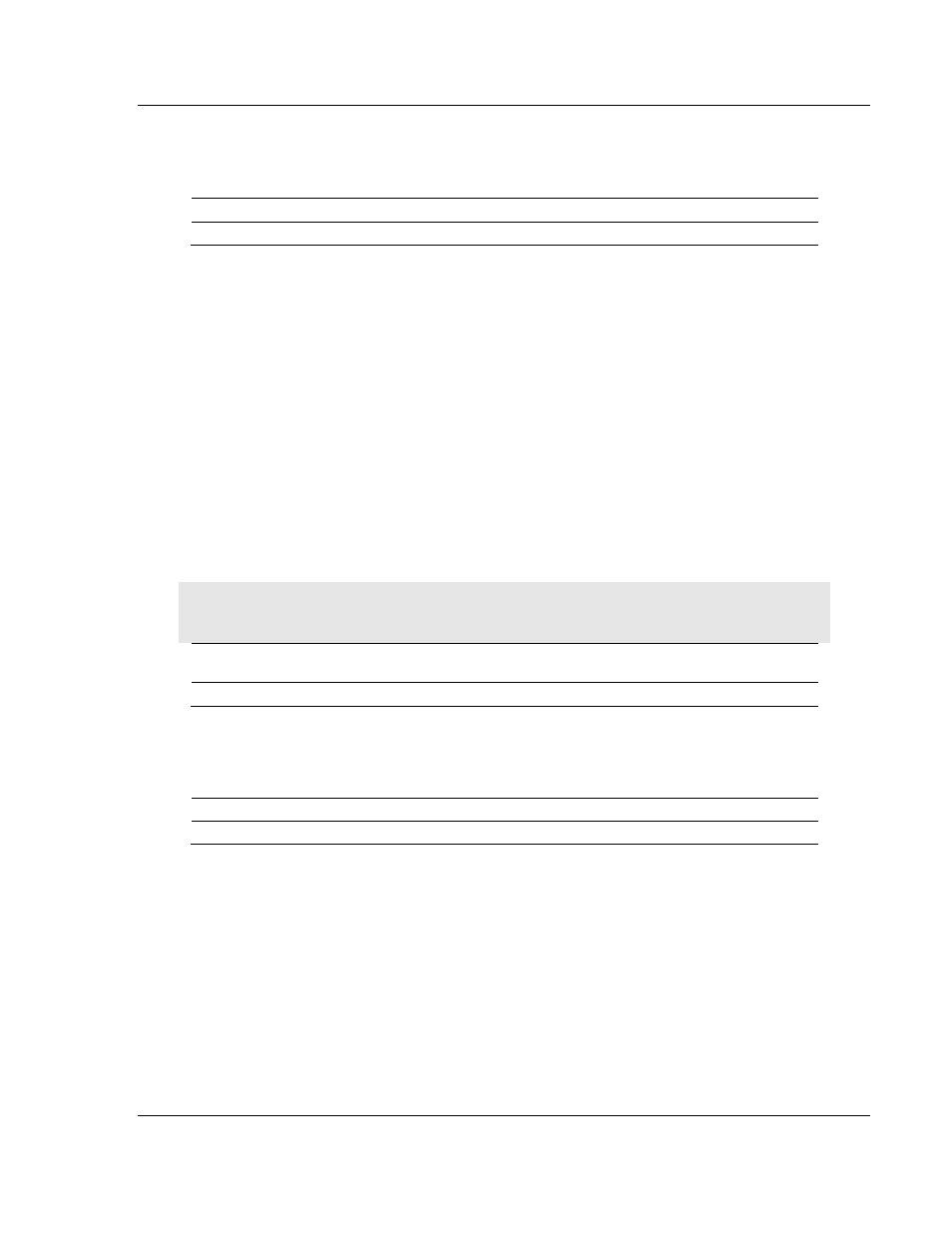Preset multiple registers (function code 16), Modbus exception responses – ProSoft Technology MVI56E-MNETR User Manual
Page 129

Reference MVI56E-MNETR
♦ ControlLogix Platform
User Manual
Modbus TCP/IP Interface Module with Reduced Data Block
ProSoft Technology, Inc.
Page 129 of 153
August 31, 2009
Response
The normal response will be an echo of the Server address, function code,
starting address, and quantity of coils forced.
Adr
Func
Hi Addr
Lo Addr
Quantity
Error Check Field
11 0F 00 13 00 0A CRC
The writing of coils via Modbus function 15 will be accomplished regardless of
whether the addressed coils are disabled or not.
Coils that are unprogrammed in the controller logic program are not automatically
cleared upon power up. Thus, if such a coil is set ON by function code 15 and
(even months later) an output is connected to that coil, the output will be hot.
5.5.10 Preset Multiple Registers (Function Code 16)
Query
Holding registers existing within the controller can have their contents changed
by this message (a maximum of 60 registers). However, because the controller is
actively scanning, it also can alter the content of any holding register at any time.
The values are provided in binary up to the maximum capacity of the controller
(16-bit for the 184/384 and 584); unused high order bits must be set to zero.
When specified registers with contents specified.
Note: Function codes 5, 6, 15, and 16 are the only messages that will be recognized as valid for
broadcast.
Adr Func Hi
Add
Lo Add Quantity
Byte
Cnt
Hi
Data
Lo
Data
Hi
Data
Lo
Data
Error Check
Field
11
10 00
87
00 02
04 00 0A
01 02 CRC
Response
The normal response to a function 16 query is to echo the address, function
code, starting address and number of registers to be loaded.
Adr
Func
Hi Addr
Lo Addr
Quantity
Error Check Field
11
10 00 87 00
02
56
5.5.11 Modbus Exception Responses
When a Modbus Client sends a request to a Server device, it expects a normal
response. One of four possible events can occur from the Client's query:
If the server device receives the request without a communication error, and
can handle the query normally, it returns a normal response.
If the server does not receive the request due to a communication error, no
response is returned. The Client program will eventually process a timeout
condition for the request.